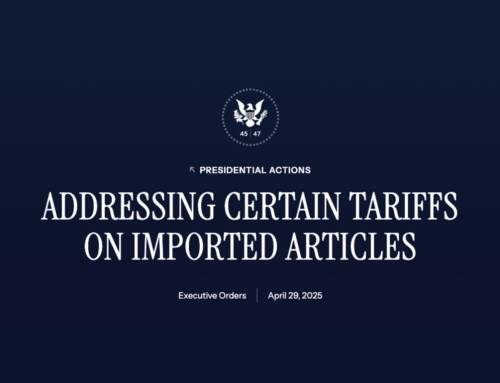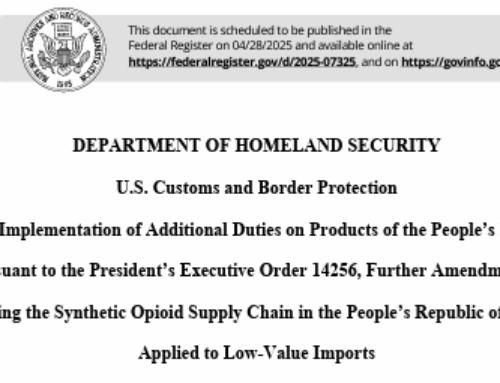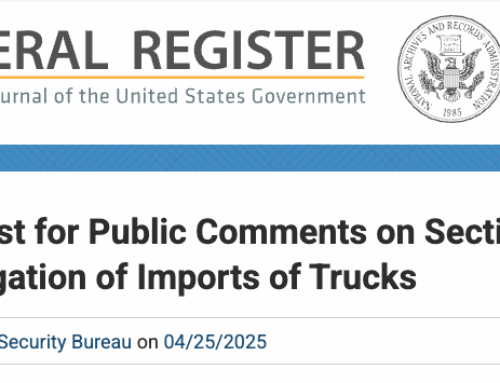It’s been almost a year since U.S. Customs and Border Protection (CBP) announced the beginning of new security measured for airfreight cargo. The Air Cargo Advanced Screening program (ACAS) was created to address “ongoing aviation security threats” by enhancing the security of the aircraft and passengers on U.S.-bound flights by enabling CBP to perform targeted risk assessments on air cargo prior to the aircraft departure for the United States.
CBP release a reminder to the industry advising an end to the informed compliance period for the ACAS and the rule would be in full enforcement starting June 12, 2019.
Likened to the Importer Security Filing (ISF) mandate for import ocean cargoes, the program will require specific shipment elements to be electronically filed prior to cargo loading. The interim ruling has a year-long implementation, during which CBP will show restraint in enforcing new requirements until the industry has had time to adjust and for companies making active effort to comply.
ACAS DATA ELEMENTS
- Air waybill number
- Shipper name and address
- Consignee name and address
- Cargo description
- Total quantity based on the smallest external packing unit
- Total weight of cargo
- Flight departure message
High-risk cargo may be issued an ACAS referral, which must be resolved before aircraft departure, or Do Not Load (DNL) instruction with action to local law enforcement.
UPDATE: JUNE 12, 2019
From the verbiage detailed in the Federal Register, the Air Carrier is responsible for the filing of the ACAS. The broker and/or forwarder can be responsible if they “elect” to file the ACAS record. Unless otherwise determined, it is the Air Carrier’s responsibility ensure the filing.
Eligible ACAS Filers
The new 19 CFR 122.48b(c) specifies which parties are eligible to file ACAS data. Eligible parties include the inbound air carrier and other parties as specified below. The inbound air carrier is required to file the ACAS data if no other eligible party elects to file. CBP is allowing parties other than the inbound air carrier to file because, in some cases, these other parties will have access to accurate ACAS data sooner. For effective targeting to occur prior to loading, it is essential that the most accurate ACAS data be filed at the earliest point possible in the supply chain. This approach is consistent with the Trade Act parameters that require CBP to obtain data from the party most likely to have direct knowledge of the data and to balance the impact on the flow of commerce with the impact on cargo safety and security.
ELIGIBLE FILERS
- Customs brokers
- Container freight stations
- Express consignment carrier facilities
- Air carriers
For more information, check out CBP’s ACAS FQ Guide.
Stay up-to-date on freight news by following us on Facebook, Twitter, and LinkedIn or, subscribe to Green’s Freight Talk blog to received updates directly to your email.






